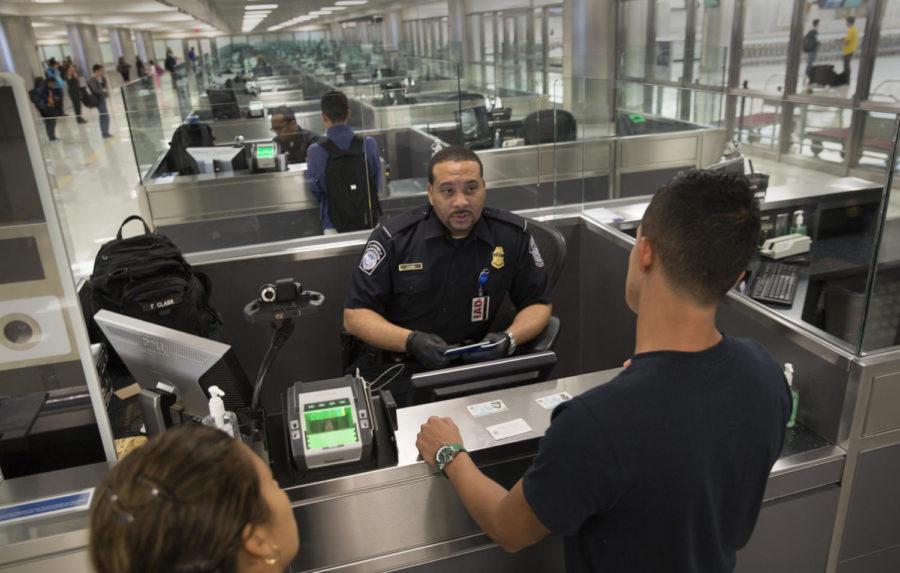Editional: Additional screenings at airports causing uninvited travel delays
U.S. Customs and Border Protection officers screen international passengers.
January 23, 2018
After 9/11, security screenings have increased at all U.S. entry points along with the birth of the Transportation Security Administration (TSA), which aims to fortify security, standardize procedures and smooth air travel.
However, the program did not add extra screenings on domestic traveling but subjected international travelers to some additional inspections by the Customs and Border Protection (CBP) officials when entering to the United States at any port of entry.
These exacerbated security checkups, when accompanied with long, exhausting interviews, started resulting in frequent delays for international travelers, especially students to the U.S.
Recently, Iowa State student Omar Elsherbiny, senior in electrical engineering, missed his flight to Des Moines when he was intensely interrogated for 45 minutes by the customs checkpoint official at Chicago O’Hare International Airport.
We understand the aim of stringent screenings for international travelers who are entering the United States, but after a long flight, such inevitable interrogations are truly inhospitable and engender additional anxiety and strain besides jet lag.
However, the incident is not new and happens frequently with international students who are flying from, but not limited to, the Middle East and South Asia. Last year, a Pakistani Fulbright scholar at the University of Chicago was denied entry into the United States despite a valid visa, which affected a quarter of his academic year.
Although it is unlawful for CBP officials to stop, search, detain or remove someone based on religion, race, ethnicity or national origin, they can stop travelers for further interrogation regardless of the validity of their identifying documents.
Mostly, travelers whose boarding passes are printed with the letters “SSSS” (Secondary Security Screening Selection) are definitely subject to additional interrogation by the CBP officials when entering to the U.S.
But there is no need to worry. We have some suggestions international students can follow to make it to their destination on time and decrease additional anxiety when encountering the CBP officials next time.
First, don’t panic whenever you are called for secondary screening or extra questioning. It happens frequently at the CBP booths.
Second, stay calm and coordinate with the officials. Try to answer their questions clearly and say sorry if you don’t know the answer to their questions.
Third, keep all your important documents with you and try to make it to the CBP counter ahead of time. It will decrease your chance of missing the next flight in case there is additional interrogation.
Finally, there is no doubt the aggravated screenings and extensive interviews at the port of entries are painstaking and traumatic, but remember, CBP is doing this to strengthen the country’s safety and make your further travels safer.
Students should not panic if asked for any additional screening or interrogation. Your coordination with the CBP officials can keep you on time and make your trip easier.
















